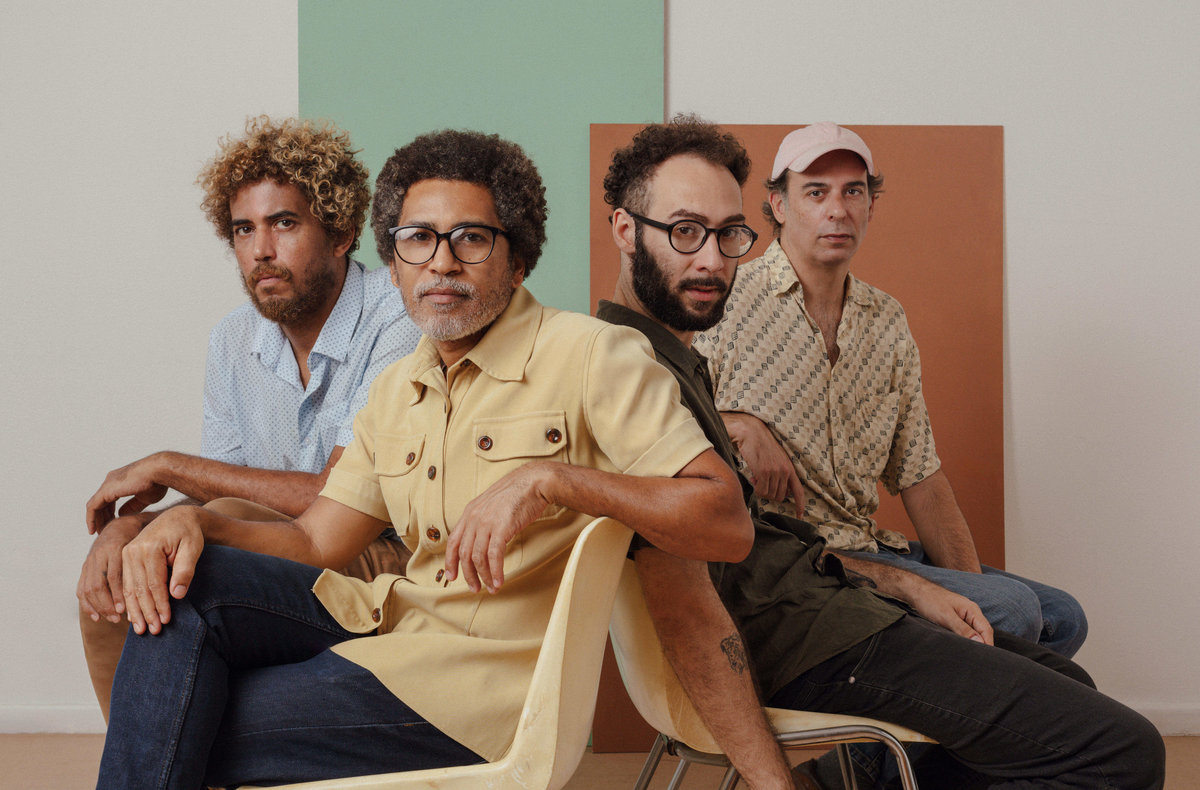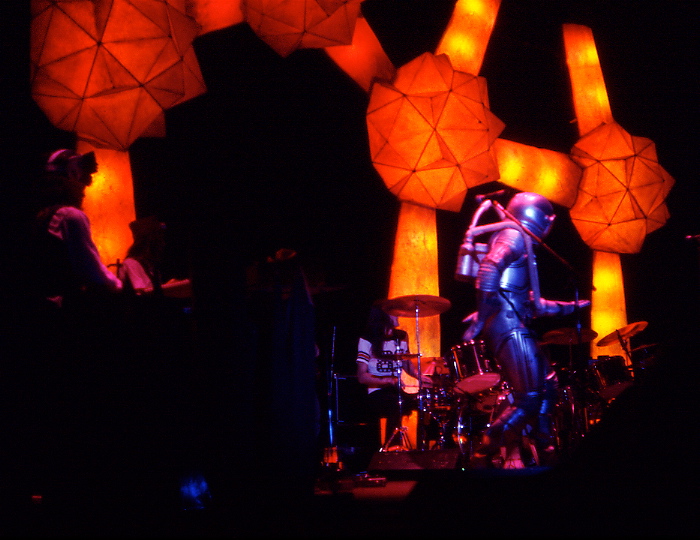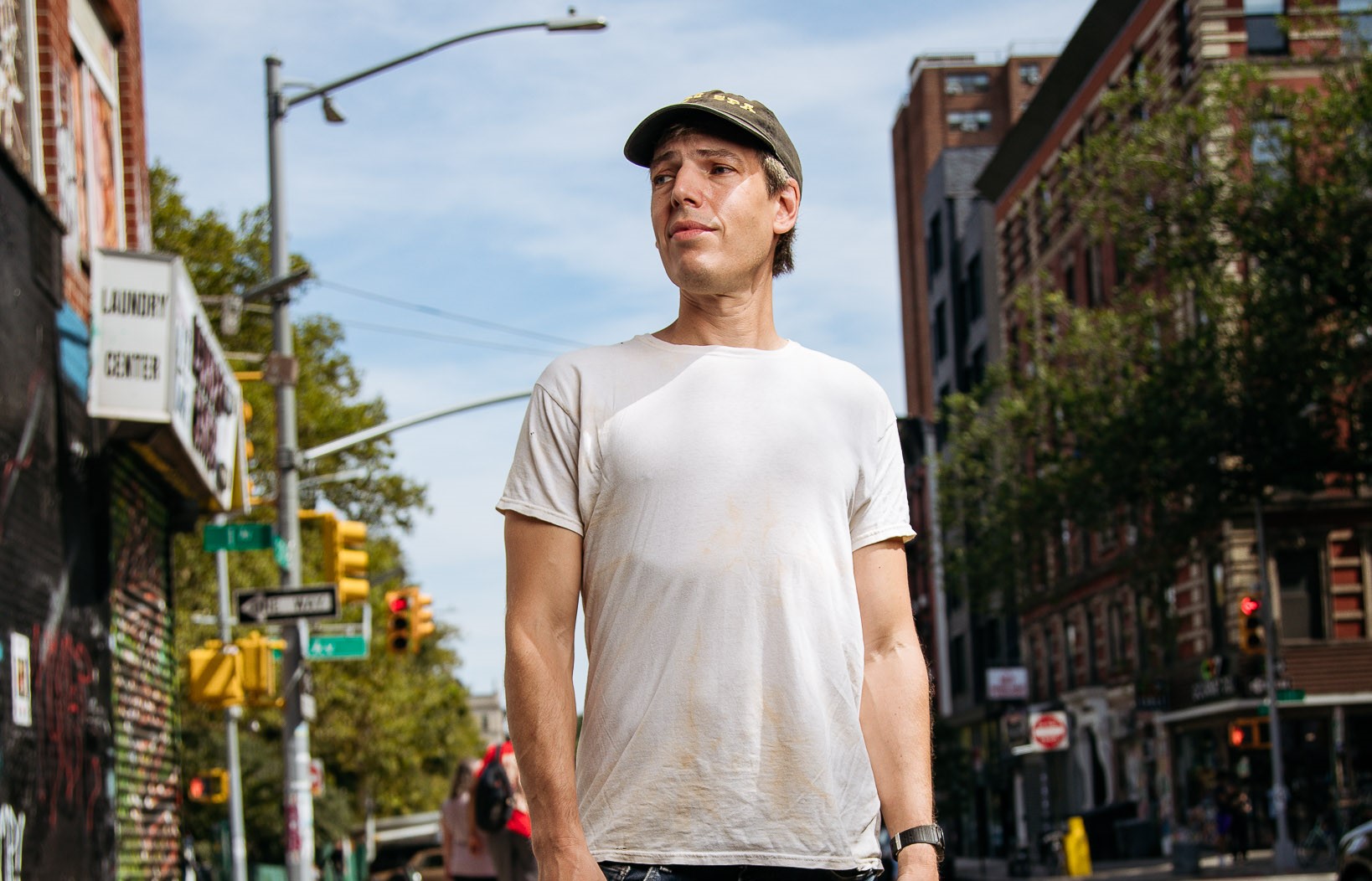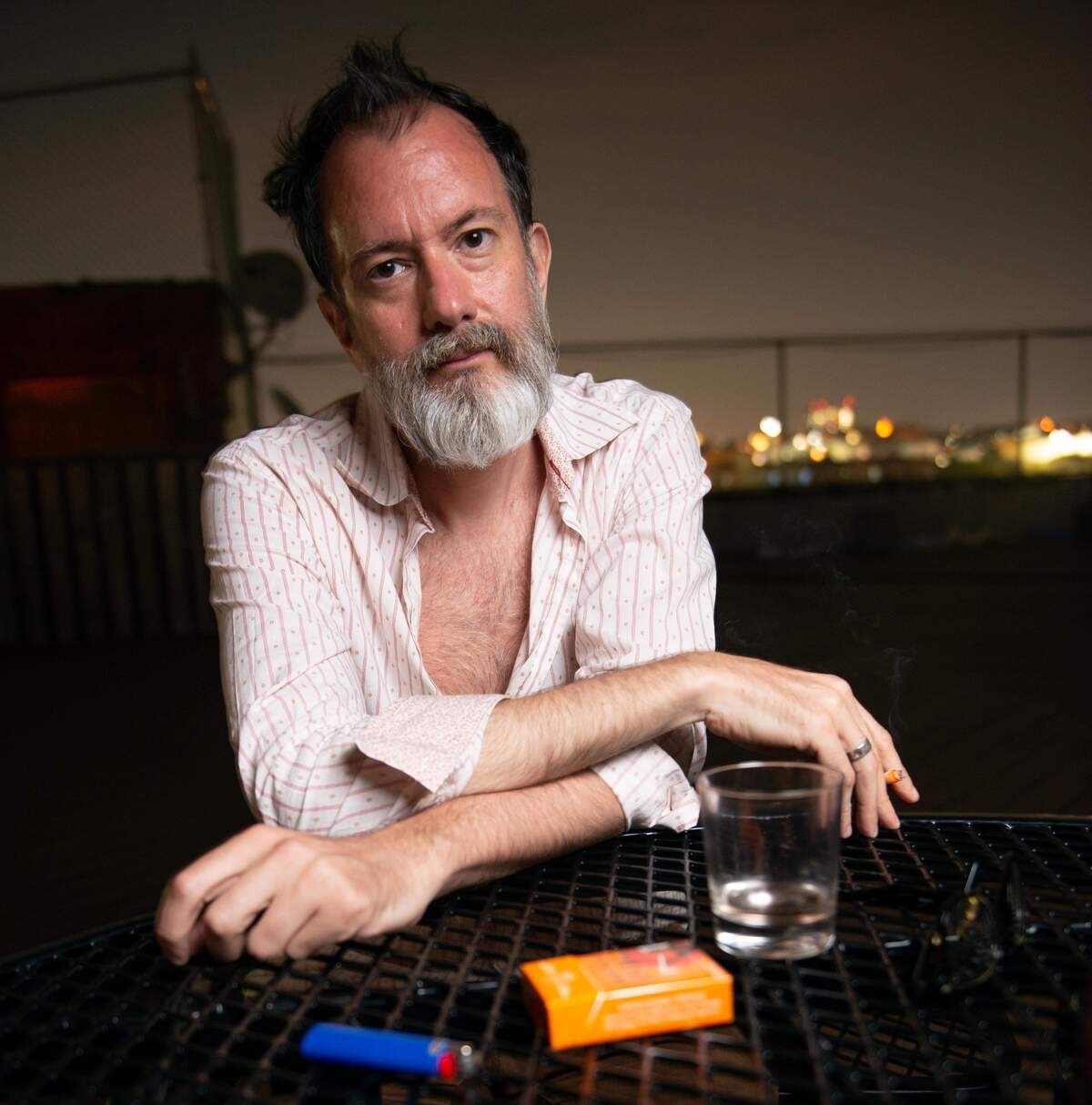Oruã | Interview | New Album, ‘Passe’
Oruã’s latest album, ‘Passe,’ is a sonic journey that effortlessly weaves Brazilian rhythms, krautrock, and lo-fi rock into a cohesive and trance-inducing experience.
Recorded in various locations, the album reflects the raw energy of a band constantly on the move, with tracks inspired by their time near the sea in Rio de Janeiro.
Frontman Lê Almeida channels the chaotic diversity of his influences into a sound that moves both body and mind, creating music without predefined genres. Their collaboration with Doug Martsch of Built to Spill has brought a fresh dynamic to Oruã’s production, pushing Lê to explore new recording techniques with high-quality equipment for the first time.
The live performances are a testament to Oruã’s power, with their track ‘Caboclo’ igniting audiences with its mix of Brazilian rhythmic intricacies and lo-fi grit. With ‘Passe,’ Oruã invites listeners to delve into a complex emotional journey, blending social resistance and personal reflection into a captivating soundscape.
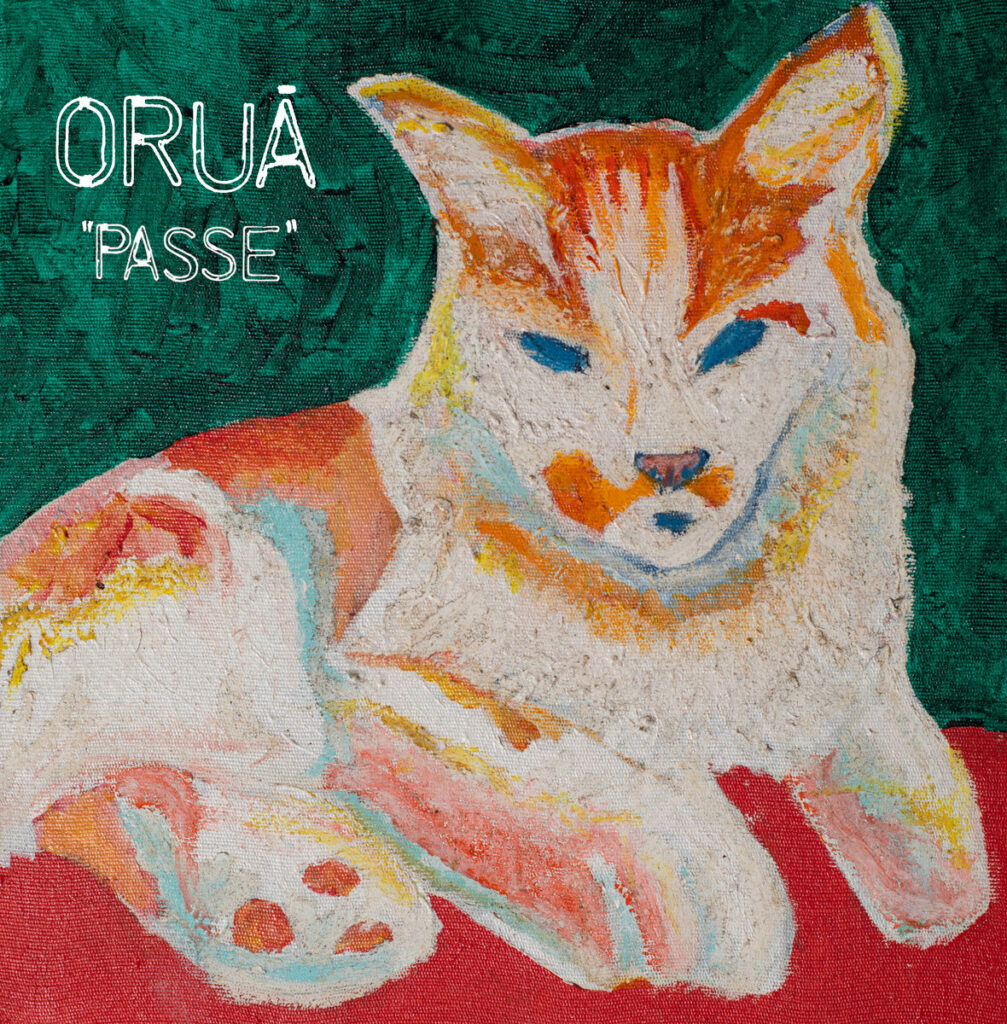
“The real meaning of this sound is to make the body move and the head think”
‘Caboclo’ is a potent slice of your experimental lo-fi vibe. Can you walk us through the sonic alchemy behind the track? What happens when Brazilian rhythmic intricacies meet the raw energy of lo-fi rock? Are there any unexpected influences or juxtapositions in ‘Caboclo’ that you think might surprise your listeners?”
Lê Almeida: It’s great to know that this track has such power. Live, you can see how much hotter it makes things.
This base stayed with me for a few years until a story of social and racial injustice crossed my path and sparked these lyrics. It’s a mixture of indignation and resistance. The Caboclo is a very peculiar figure in Brazil.
Your latest LP, ‘Passe,’ promises a journey through a labyrinth of eclectic sounds. With its diverse tracklist—from ‘Real Grandeza’ to ‘Espiritualmente Aceso’—how do you weave together these seemingly disparate elements into a cohesive sonic narrative? What’s the connective tissue binding the chaos of your influences into the final form of ‘Passe’?
Initially, the idea was to record these tracks in different places and mix different recordings on the same track. It was a crazy idea that didn’t work out, but the album was recorded in various places during periods when we were traveling together on tour. Many of these tracks came about while we were living together in an area near the sea in Rio de Janeiro. That atmosphere is very noticeable.
You were on the road this summer with Dad Bod, and your tour kicked off in Boise, ID. How did you prepare for the emotional and physical rollercoaster of a U.S. tour, especially with a fresh LP dropping? Were there any pre-show rituals or strategies you developed to maintain that raw, unfiltered energy night after night?
The reality of where I live gives me confidence and planning. The desire to move ideas around the world ends up making our strength unbeatable. On this tour, we prepared ourselves on how to survive on the road by eating well and playing good shows. After many tours here, we now have some good bases to stay in, which really strengthens our structure.
Your music channels a myriad of influences—from krautrock to afrobeat, to classic Brazilian psych rock. How do you balance respect for these influences with the desire to forge something entirely new and unique? Can you give us a glimpse into your creative process when blending these diverse sounds?
These diverse influences were the result of the intense work I did putting out sound in the concert space we have in Rio, the Escritório. Basically, this space was a school of many sounds for me, and all this was channeled into Oruã, especially the idea of making music without predefined musical genres. The real meaning of this sound is to make the body move and the head think.
The story of how Doug Martsch discovered Oruã is legendary. How did that connection shape your approach to both your music and your place in the indie rock universe? Did working with Martsch influence your sound or songwriting in any unexpected ways?
Since I was very young, I’ve always listened to Built to Spill, and I’ve also always been fascinated by the world of recording. The connection with Doug made him want a BTS record with my production on the sound. This made me develop a new type of recording because it was the first time I had access to really good equipment. During these recordings, I learned a lot about what I had been studying for years.
You’ve previously collaborated with Built to Spill, a band with a distinctive sound and legacy. What was it like stepping into their world, and how did that experience affect your own musical evolution? Did any of that collaboration seep into the creation of ‘Passe’?
I’m sure that entering the Built to Spill universe made my ideas boil over about how to keep playing music and making records. I learned a lot about routes where indie rock is very big in the United States. In Brazil, the outlook is very low and it’s very difficult to get going.
Lê, you’ve got a reputation for blending lo-fi aesthetics with intricate musical structures. How do you keep the balance between raw, unpolished energy and meticulous, thoughtful composition? Is there a particular track on ‘Passe’ that embodies this balancing act more than others?
I believe that a record has room for many adventures. ‘Análise de Conjuntura’ on ‘Passe’ is one of those tracks that came out of an extremely spontaneous improvisation. My biggest job in the mix was to get the wrong notes out. Oruã’s albums have always had these more experimental tracks. I ended up going down this path, trying to find new things, especially in the rhythms and the spaces between the notes.
As veterans of the Brazilian lo-fi scene, how do you see the genre evolving? Are there emerging trends or new artists in Brazil that excite you? What’s your vision for the future of lo-fi music, both locally and globally?
The post-pandemic world has seen a lot more people knowing how to record and make things happen. In Brazil, I’ve been very excited to see a lot of good new bands recording things at home and shaping good sounds. I believe that lo-fi is basically part of necessity. Those who want and need to do it, do it with what they have, and this creates a special atmosphere in the recordings.
Your music often carries a sense of mystique and spiritual depth. Can you talk about the role of spirituality in your work? How do concepts of the metaphysical or existential find their way into the music and lyrics of Oruã?
I believe very strongly in the power of music, both as a healing power and as therapy. Oruã came about at a difficult time when, for the first time, I was able to put my difficulties into words and turn them into other things, basically good things. Oruã’s concerts stir up a lot of energy, and that moves me a lot. It makes me think very carefully about what to say in my lyrics. There is a lot of resistance in Oruã’s music, and I try to make this resistance make sense to other people. I see this clearly at the shows.
With ‘Passe’ being described as a trance-inducing experience, what kind of emotional journey do you hope your listeners embark on when they immerse themselves in the album? What are the core emotions or states of mind you aim to evoke through your music?
Just the movement of making people curious about the history of the record and the city we come from is huge for me. I hope people think more about Brazil and class differences. At the end of the day, by doing what we do and coming from where we come from, our story is quite peculiar.
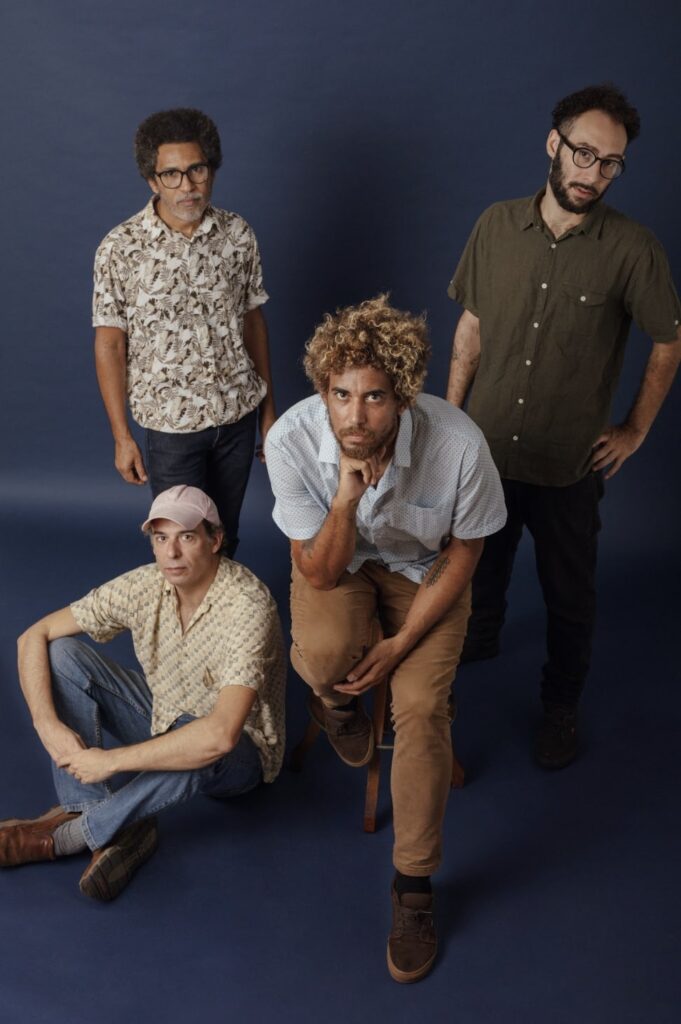
What are some of the latest records you like to listen to?
This is my current top 5:
Caxtrinho – ‘Queda Livre’
Duster – ‘In Dreams’
Milton Nascimento and Esperanza Spalding – ‘Milton + Esperanza’
Monstro Bom – ‘Verde Limão’
Beak> – ‘>>>>’
Klemen Breznikar
Headline photo: Pan Alves
Oruã Official Website / Facebook / Instagram / Bandcamp / YouTube

